Victoria hits 70 per cent first dose vaccination target as state records 510 new cases
People aged over 60 in Victoria and NSW will not be given immediate access to Pfizer — in contrast to Queensland’s plan.
Coronavirus
Don't miss out on the headlines from Coronavirus. Followed categories will be added to My News.
• This coronavirus article is unlocked and free to read in the interest of community health and safety. Tap here for our latest great value offer and instantly access trusted news from the Herald Sun and Leader.
Premiers Daniel Andrews and Gladys Berejiklian have teamed up in national cabinet to pour cold water on the plan by their Queensland counterpart Annastacia Palaszczuk’s to give Pfizer vaccines to the over 60s, arguing they need to stick to AstraZeneca.
Instead the pair argued that they would wait at least another fortnight while other priority groups are given Pfizer, sources familiar with the meeting said.
The refusal is in contrast to Queensland’s plan to make Pfizer available immediately to people over 60, a move that has been criticised because it will see AstraZeneca vaccines go to waste.
Friday afternoon’s national cabinet meeting ticked off on a national code on boarding school Students which will allow them and their parents and carers as well as boarding school staff travel across borders between school and home.
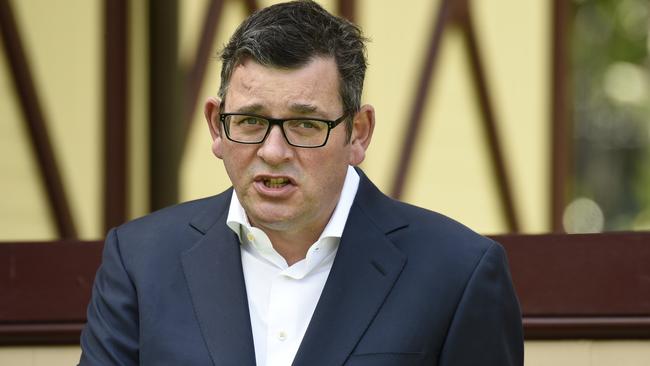
Minister for Regionalisation, Regional Communications and Regional Education Senator Bridget McKenzie called on all jurisdictions to quickly implement the plan to help 23,000 boarding students and their families travel during the Term 3 school holidays.
“While border closures and intrastate travel restrictions have helped contain the spread of COVID-19, it has unintentionally left some boarding students isolated and unable to receive the support and care of family, causing additional stress and anxiety during what is already a difficult time,” she said.
“Today’s decision is a win for commonsense. The National Code takes a clear, compassionate and practical approach to supporting the travel needs of boarding school students.”
national cabinet also received an update from the Doherty Institute’s Professor Jodie McVernon of the Doherty Institute and top bureaucrat Phil Gatejens in modelling on reopenings. The modelling again confirmed Doherty’s analysis the Delta variant can be managed when between 70 per cent and 80 per cent of the population over 16 have been double jabbed when combined with testing, tracing, isolation and quarantine regimes.
The modelling leaves a place for limited restrictions to stay in place along with precautionary measures such as face masks to reduce spread and prevent the health system from melting down.
The modelling presented to national cabinet showed that even in an outbreak with Doherty’s sensitivity analysis showed that, even if an outbreak starts with hundreds or thousands of cases it should not change plans to begin relaxing restrictions at vaccination rates between 70 per cent and 80 per cent.
When cases are at a higher level however the modelling does still allow for “medium” restrictions in areas of concern.
At current vaccination the gap between 70 per cent and 80 per cent vaccination rates is likely to be bridged within two weeks.
Given the pace of the vaccination roll out, the transition from 70% to 80% by jurisdiction is modelled to take around two weeks.
Professor Mcvernon told the meeting the impact of COVID-19 on children is already incorporated in the Doherty’s previous modelling and the setting of targets.
The meeting also agreed all jurisdictions will work to integrate people’s immunisation history into state and territory check-in apps which can be used to comply with public health orders.
VICTORIA’S BIG VACCINE MILESTONE
Seventy per cent of eligible Victorians have received the first dose of the coronavirus vaccine as Melburnians prepare to enjoy a minor easing of restrictions.
The Department of Health made the announcement on Twitter, saying the milestone meant some lockdown rules could now ease.
“Let’s keep the momentum going!” the tweet read.
It comes as the state recorded a total of 510 local cases from coronavirus in the past 24 hours.
However, a woman in her 50s has died from the virus.
Health Minister Martin Foley offered his deepest condolences to family and friends at this “very sad time”.
There are now 208 Victorians in hospital with the virus, with 49 in intensive care and 32 needing ventilation.
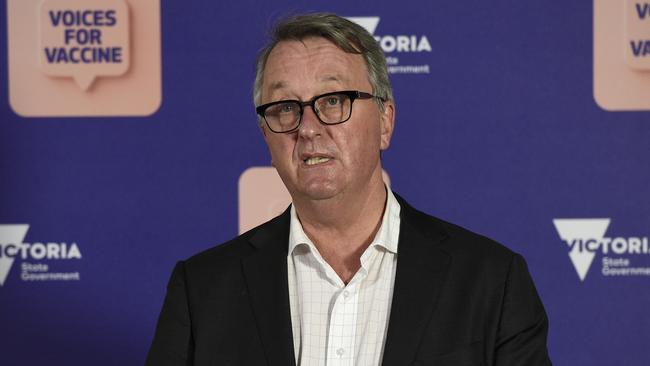
Mr Foley said 87 per cent of the Covid patients in hospital were not vaccinated, 12 per cent were partially vaccinated and two had received both doses.
Nine people have now died with Covid during the latest outbreak, with 829 lives lost since the start of the pandemic.
Of the latest infections, 124 have so far been linked to known cases and outbreaks.
One case was recorded in hotel quarantine.
More than 69.3 per cent of eligible Victorians have now had their first vaccine dose.
In total, 43,993 vaccines were administered and 55,476 test results received.
The state now has 4,697 active cases.
Congratulations Victoria – thanks to the incredible efforts of our community, GPs, nurses and pharmacists across the state, 70% of us have received our first dose of the COVID-19 vaccine 🙌
— VicGovDH (@VicGovDH) September 17, 2021
🎉 Now we’ve hit 70%, some restrictions are easing, so let’s keep the momentum going! pic.twitter.com/93BdkvNRG7
DOCTORS, NURSES BEG FOR RULES TO STAY
Victoria’s nursing union and the Australian Medical Association have pleaded with the state government to consider the impact that reducing restrictions will have on the healthcare system.
Lisa Fitzpatrick, state secretary of the Australian Nursing and Midwifery Federation, on Friday said it was “absolutely critical” the state did not open up too early, as hospitals braced for an influx of Covid-19 patients.
“It’s not about getting on the beers too early because there won’t be beers to be had whilst you’re in hospital in an ICU bed,” Ms Fitzpatrick said.
“We want our politicians here in Victoria, irrespective of what the national cabinet decides to put Victorians first.”
The AMA’s Victorian branch president, Roderick McRae, said hospitals were already “stressed” as healthcare staff worked overtime hours and without leave to make up for furloughed workers.
“Be aware of the numbers you are hearing on your news bulletins over your breakfast cereal, there is a steady increase (of hospitalisations),” he said.
“Understand that the capacity to deal with all of these medical problems has been under-invested in for decades, and now we have this crisis of healthcare.”
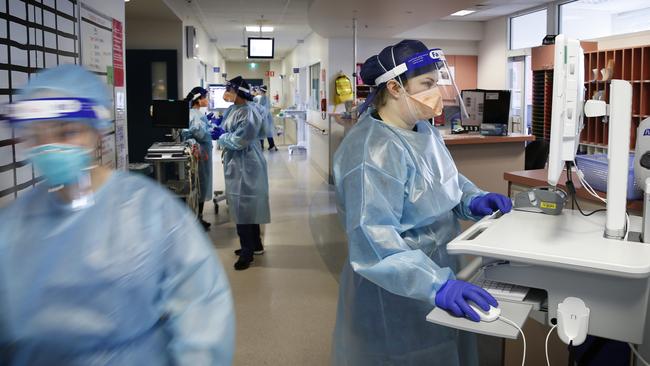
Dr McRae warned ICU beds were quickly filling up and healthcare staff were fatigued after battling the pandemic for 18 months.
“It doesn’t matter if the Premier, (or) the Health Minister … says ‘great you can get out there’, the strongest advice that the organised medical caring professionals can state is do not do that,” he said.
“All of the healthcare unions are together to advise the politicians making decisions, and also the public.
“The unspoken message is, do not move around … (so we can) minimise the transmission of this virus.”
Speaking to reporters at the Royal Melbourne Hospital, frontline ICU staff said they held grave concerns about rising case numbers and hospitalisations.
“We’re actually nearing full (capacity), we’re having to plan and shift patients outside of the ICU to other hospitals,” ICU nurse Steven Moylan said.
“We do have bed plans in place but they stretch our resources and we can open up but there’s only so much staff that can staff those beds – especially in intensive care.”
ICU doctor, Yasmine Ali Abdelhamid, said healthcare resources were “finite” and contingency plans were being put in place to deal with an expected rise in Covid patients.
“I’m definitely worried about what’s ahead. It’s been a long 18 months, healthcare workers are tired, parents are tired, community members are tired … but the time for patients is still now,” she said.
WHERE THE LATEST CASES EMERGED
Victorian’s Covid-19 commander Jeroen Weimar revealed 95 per cent of the state’s new cases on Friday were from the northern and western suburbs.
He said 276 cases were in the north, including suburbs such as Craigieburn, Roxburgh Park and Broadmeadows.
Another 185 infections were detected in the western suburbs, including Truganina and Hoppers Crossing, while 38 cases were from the southern and eastern suburbs in areas like Cranbourne North, Pakenham and Dandenong.
Overall, Mr Weimar said 91 per cent of the active cases were from the northern and western regions of Melbourne.
Three further cases were also recorded in locked down Ballarat.
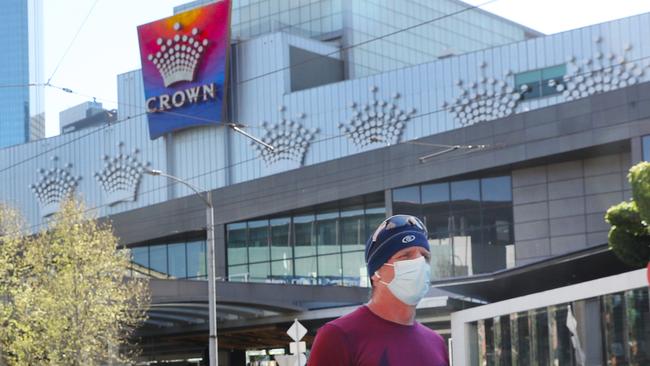
NEW MELBOURNE AREAS OF CONCERN
Victorian health authorities are growing increasingly concerned over the growth of Covid-19 cases in Melbourne’s eastern and southeastern suburbs.
Health Minister Martin Foley revealed 38 of Friday’s 510 new infections were from the region, and there was now 329 active cases across the southern and eastern suburbs.
“We want to make sure that everyone in those areas gets tested at the first signs of symptoms,” he said.
Previously, the northern and western suburbs of Melbourne were the areas of most concern.
Mr Foley revealed a new vaccination clinic would be set up at Dandenong’s Palm Plaza and a pop-up site at the Hallam mosque.
A new clinic will also open at the Eastland shopping centre in Ringwood starting at 300 does a day before scaling up to 1200 doses a day by next week.
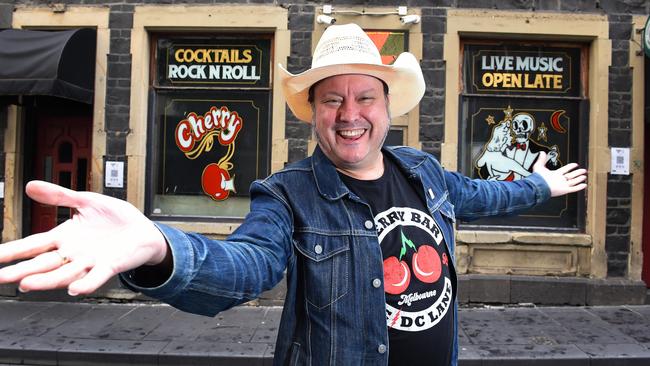
NEW HOPE FOR BUSINESSES
Melbourne businesses could be allowed to reopen under a plan to trial vaccine passports from as early as next week.
City of Melbourne councillors will on Tuesday vote to lobby the state government to immediately roll out the passport scheme at selected venues across the CBD.
Some of Melbourne’s most renowned hospitality, arts and entertainment venues – including Garden State Hotel, Cherry Bar, San Telmo and Asado – could open their doors to fully vaccinated Victorians.
It would make the city one of the first municipalities in the state to pilot the temporary scheme, which has so far only been proposed in regional Victoria. Only fully vaccinated Victorians – including staff at the participating businesses – would be eligible to participate in the proposed health pass.
The Night Time Economy Advisory Committee (NTEAC) – made up of leaders from the sector – is championing the pilot program, and has called on the Victorian government to let them reopen sooner.
NTEAC chair James Young said trialling a health pass system would minimise health risks and help get struggling businesses open sooner.
“An opt-in trial in the City of Melbourne is the perfect opportunity to identify and resolve issues in partnership with industry and government,” Mr Young said.
“It would require streamlined technology and processes to minimise the compliance burden on businesses and venues of all sizes, and to ensure the system is rolled out quickly and effectively.”
Lord Mayor Sally Capp said the City of Melbourne had been doing “everything it can” to get more Victorians vaccinated in a bid to reopen the city.
“Nowhere in Australia has been hit harder by devastating lockdowns than Melbourne, and our businesses should be the first in line to reopen safely,” Ms Capp told the Herald Sun.
“They’re prepared to do whatever it takes.”
City Activation portfolio lead Roshena Campbell said now was the time to explore options that could safely reopen city businesses and protect livelihoods.
“Our city’s businesses have been crippled after six lockdowns and the earlier businesses can reopen, the quicker our city can recover,” Ms Campbell said.
The scheme would only operate until vaccination levels are sufficient to lift health restrictions.
Councillors will vote on whether they will advocate for the health pass at the Future Melbourne Committee on Tuesday September 21.
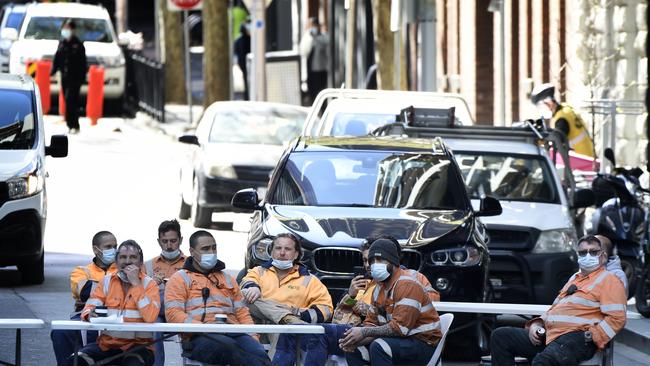
TRADIES IN SMOKO PROTEST
Melbourne’s tradies have taken to the streets in a bizarre way on Friday morning to protest against the closure of tea rooms on construction sites.
Premier Daniel Andrews revealed tea rooms on work sites needed to close due to the increasing risk of Covid-19 transmission within the construction industry.
On Friday, workers took their smoko and lunch break to the street to protest against the new rule.
Workers set up an outdoor break room at the intersection of A’Beckett and Elizabeth streets in Melbourne’s CBD, blocking cars and holding up traffic.
Similar protests were also held outside construction sites in Spencer St and in Richmond.
Read the full version of this story here.
SMALL FREEDOM FOR FULLY JABBED
Fully vaccinated Melburnians will be able to gather in larger groups under new freedoms that will, for the first time, be given exclusively to those who have received both doses.
People yet to be vaccinated – or those who have had just one dose – can only gather with one other person under a slight easing of the city’s lockdown.
Premier Daniel Andrews gave the green light to picnics and outdoor social interaction for groups of two from Saturday, after the state was set to hit its 70 per cent first-dose vaccination target.
But Melburnians who have received two doses will be able to gather in groups of up to five, plus dependants, from two households.
For everyone, the 5km movement restriction will extend to 10km, people will be able to spend up to four hours outside per day, and outdoor gyms and skate parks will reopen.
“We know this is what the community is craving – the notion of being able to see the people they love and care for,” the Premier said. “These are modest (changes) … but they are not unimportant. They are meaningful.”
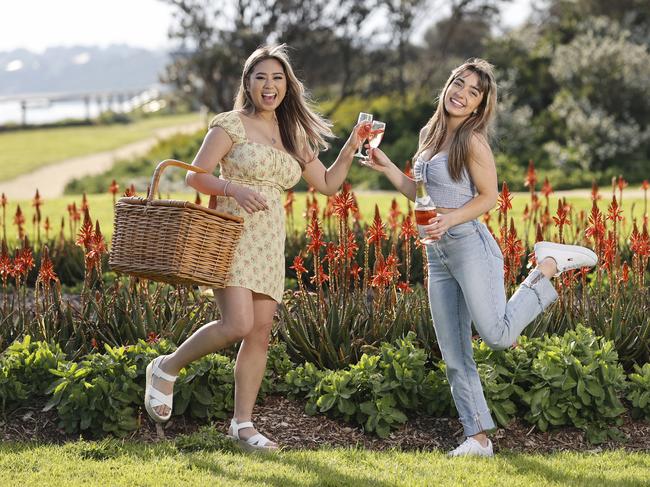
Victoria on Thursday recorded its highest daily case figure since August 4 last year, with 514 local cases, including 366 mystery infections.
While fully vaccinated Melburnians – along with double-dosed people living in locked down Ballarat – would gain slightly greater freedoms, Mr Andrews said the larger gatherings would be subject to an “honour system”.
Mr Andrews confirmed police would not patrol parks to question a person’s vaccination status.
Despite picnics being permitted, there would be no changes to current laws that make it illegal to remove a mask to drink alcohol outside the home. But the Herald Sun understands police would not actively seek to enforce that direction.
“We are not going to have police in every park. We are not going to have police out there requiring people to prove they have been vaccinated,” Mr Andrews said.
“There’s a degree of good faith in this. I’m asking people to do the right thing.
“We can’t literally have a situation where we are going park by park, picnic by picnic. That’s not an invitation to break the rules.”
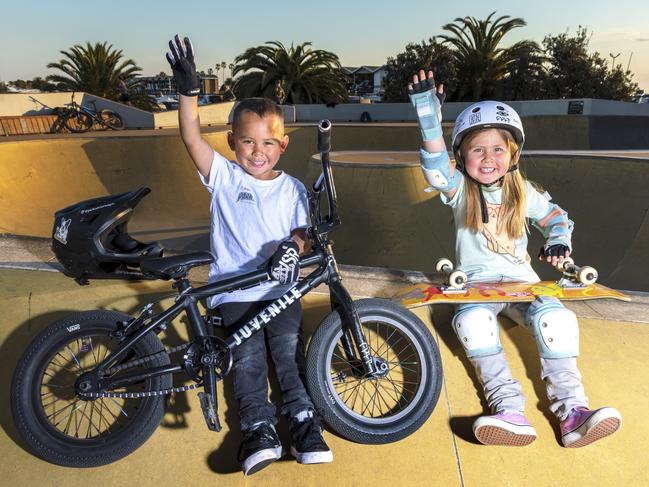
Melbourne will continue to live under a curfew, with Mr Andrews maintaining he had received no health advice to lift the controversial measure, despite NSW scrapping it.
“The curfew works … it’s proportionate to the challenge we face,” he said.
Friends Isabella Jenkins and Cylina Tran will be among Melburnians toasting the small step out of lockdown, saying it was a welcome reprieve from spending most of the time indoors.
And Andy Marriner said his daughter, Neave, 4, was thrilled she could return to the skate park, having only picked up skateboarding a few months ago. “We’ve got some lessons booked in now for next week,” he said.
Meanwhile, restrictions in regional Victoria – except for Ballarat – will ease further, with gyms, outdoor and indoor pools to reopen.
Mr Andrews will on Sunday unveil a highly awaited roadmap to more freedoms, which will be tied to vaccination rates, including a 70 per cent double-dose target.
He said the state was due to hit that milestone about October 26, and 80 per cent fully vaccinated as soon as “a matter of weeks later”.
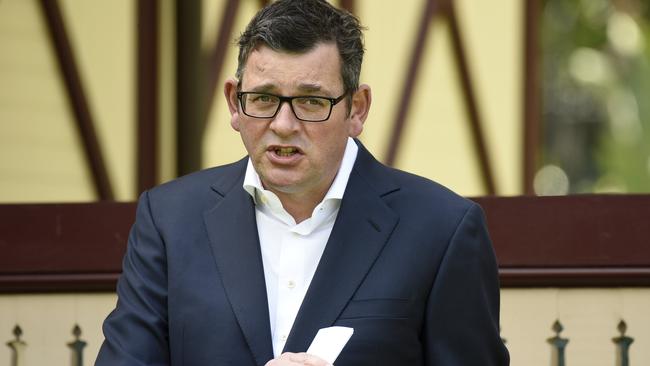
MAP YOUR 10KM RADIUS
VAX FOR ENTRY BACKED
Two in three Australians believe fully vaccinated people should be allowed to attend public events and activities without any restrictions.
But almost a quarter disagree with excluding those who haven’t had their Covid jab.
A new Melbourne Institute survey released on Thursday reveals most Australians (57 – 68 per cent) agree with denying unvaccinated people access to certain public events and activities.
But when asked whether the government should require businesses to deny service to unvaccinated customers, support dropped to 50 per cent of respondents, and more than a quarter disagreed.
The survey of 1200 Australians aged 18 years and over also found vaccine hesitancy has reached a low of 14.4 per cent in Victoria, paving the way for the state to reach the magic 80 per cent double vaccinated target.
The figure is made up of 9.4 per cent of respondents, who say they are not willing to be vaccinated, and 7.3 per cent who are still unsure.
It’s the biggest drop in Australia, falling from a previous high of 20.2 per cent on August 20.
BACKLASH OVER CONSTRUCTION JAB RULE
Construction workers are scrambling to get the jab and worksites are bracing for disruptions as new coronavirus restrictions are imposed on the industry.
Under rules announced on Thursday, every worker on a Victorian construction site is required to have their first vaccine by September 23.
Movement of construction workers between Melbourne and regional Victoria will also be banned in an effort to limit outbreaks similar to the one unfolding in Ballarat.
Deliveries of materials will be allowed but the policy will be strictly enforced for anyone who works on site.
Read the full story here.
STRAIN SAPS TEACHERS
Teachers are facing burnout with increased workloads amid the ongoing demands of remote learning.
The Herald Sun has seen an email exchange between a teacher and a principal from a high school in Melbourne’s southeast, with the teacher saying she was under “incredible stress” and was “unable to cope” with the demands of remote learning.
Another teacher, from a school in Melbourne’s east, told the Herald Sun she was thinking of leaving the profession due “ongoing stress”.
“It’s been so challenging, I am having to work at least an extra 15 hours a week just to keep up,” she said.
Australian Education Union Victorian Branch president Meredith Peace said Victorian teachers, principals and education support staff had done a remarkable job rising to the remote-learning challenges.
A Department of Education spokesman said: “The Victorian government has invested more than $51m to support the health, safety and wellbeing of Victorian government school staff as part of the Safe and Well in Education Strategy, and the department will continue to support teachers in their work and wellbeing”.
REGIONS STILL BOOMING
Melbourne’s exodus to sea and tree-change areas is tipped to continue, with demand for regional property “on steroids” as a result of ongoing lockdowns.
The number of people leaving the city accounted for 47 per cent of Australia’s net internal migration total in the last financial year, with 26 per cent of those metro-leavers settling in regional locations nationwide, according to data from Commonwealth Bank and the Regional Australia Institute.
The June quarter Regional Movers Index revealed the local government areas recording the biggest growth in migration from city dwellers were all within a three-hour drive from the CBD.
They include Moorabool, which had a 68 per cent increase, Mansfield, 62 per cent, and Corangamite, where population surged by 52 per cent.
The Murray River area, located in NSW, was next in line (48 per cent), followed by Alpine region (47 per cent).
Greater Geelong also saw a significant influx of Melburnians, with an increase of 26 per cent during the year to June 2021.
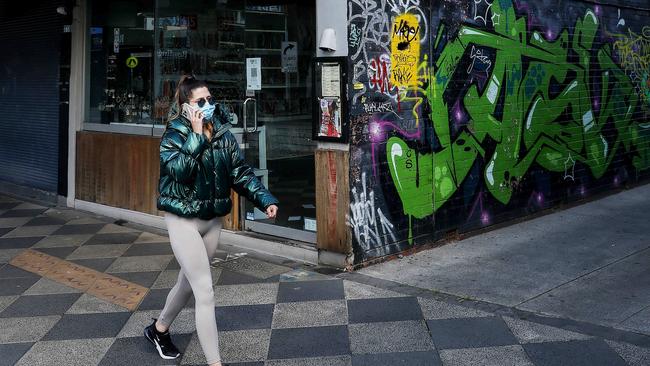
VICTORIA THE ONLY SHRINKING STATE
Victoria shrunk by 42,900 people last year, the Australian Bureau of Statistics has revealed.
The only state not to grow, Victoria’s population decline was equal to losing a city the size of Wodonga.
Queensland saw the highest growth, with an extra 43,900 people, while other states saw low or modest increases – with NSW’s population increasing by 11,700 people and WA by 15,000.
Australia’s population grew by 35,700, to an estimated 25.7 million. The 0.1 per cent increase is the lowest since WWI.
The data reflects the first full year of the pandemic’s impact on the country’s population, with overseas migration negative for the first time since 1946.
The ABS also revealed Victoria’s unemployment rate fell to a record low as fewer people looked for work during lockdown.
The bureau released its latest monthly employment figures on Thursday, revealing the jobless rate fell to 4.1 per cent in August.
However the figure does not reflect the reality of the job market, as underemployment rose to 9.1 per cent as thousands of people with jobs worked reduced or zero hours.
Nationally, the jobless rate fell to 4.5 per cent – the lowest since the global financial crisis in 2008.
The low jobless figure was driven by a 0.8 per cent drop in the participation rate, which includes people with a job or looking for work.




